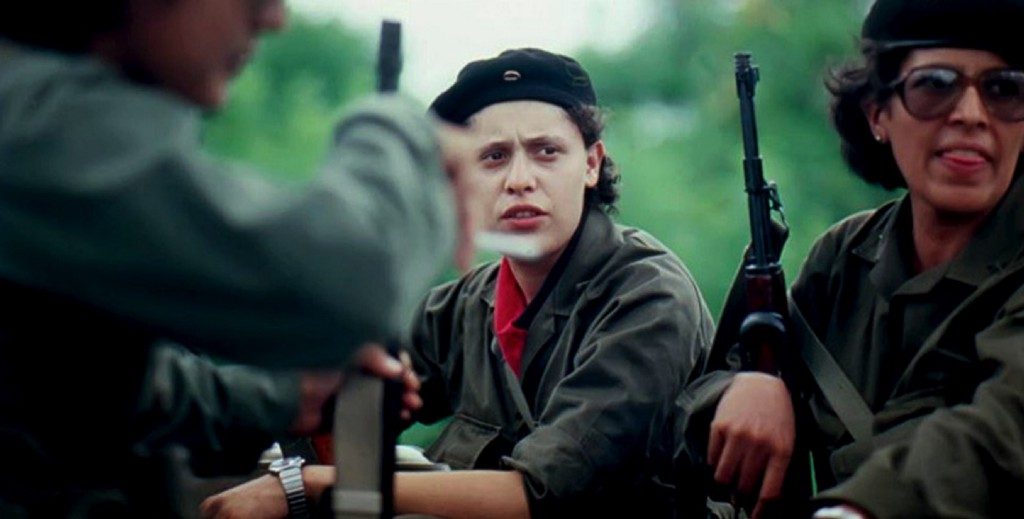Jenny Murray is the director of two short films and multiple social satire comedy videos. Her most recent short narrative film was selected to screen at Anthology Film Archives in New Filmmakers New York Winterfest. “¡Las Sandinistas!” is her feature directorial debut.
“¡Las Sandinistas!” will premiere at the 2018 SXSW Film Festival on March 12.
W&H: Describe the film for us in your own words.
JM: It’s a story about a handmade Revolution in Nicaragua in 1979 and tells the disappearing stories of women who heroically led combat and social reform in the Revolution.
W&H: What drew you to this story?
JM: The women themselves amazed me. They were funny, fearless, idealistic, and also very real, in a certain way. I felt their stories could offer a real and inspiring reminder of women’s strength and capacities.
When I found out that many of their stories were being erased from the history of the Revolution, I felt compelled to document and share them as soon as possible.
W&H: What do you want people to think about when they are leaving the theater?
JM: Hopefully people will feel hopeful and excited about what’s possible for women, and moved by how much women have achieved that is erased or forgotten — and left out of history altogether.
W&H: What was the biggest challenge in making the film?
JM: I’d say editing and post-production fundraising were our biggest challenges. We all learned so much in the process of finishing the film, which is really a wonderful gift, and will help with making future projects.
W&H: How did you get your film funded? Share some insights into how you got the film made.
JM: The film was crowdsourced at the beginning, and then I invested my own savings to finish the rough cut. We didn’t have luck getting grants, so that was the hardest part, but then ITVS came on as a co-producer last year based off our first rough cut through Open Call, which was awesome, and they’re helping us finish the film for broadcast.
W&H: What does it mean for you to have your film play at SXSW?
JM: It’s incredible! I’m so excited to have the film premiere at SXSW. We think it’ll be an incredible chance to connect with diverse, engaged audiences and film lovers. I also feel like the festival programmers and head Janet Pierson do an awesome job including and promoting boundary-pushing female work, from films made by Amy Schumer and Lena Dunham to edgy, micro-budget, female-directed indies. It’s a dream to have the chance to show work in that environment.
W&H: What’s the best and worst advice you’ve received?
JM: The best advice I received is to always listen to your own inside voice, and to remember that if you listen to someone else over yourself, and feel you’ve on some level had to compromise your own power, there’s something wrong, and you have to pay attention to that.
The worst advice I received is to trust someone else’s vision instead of your own.
W&H: What advice do you have for other female directors?
JM: Don’t get too good at listening to advice; your own internal instincts should always lead your vision.
W&H: Name your favorite woman-directed film and why.
JM: “Orlando” by Sally Potter. It’s unlike any other film, and her directing has such a bold and magical quality. People had said it was a book that would be impossible to film, and then boom! She just invented this vivid, ultra cinematic language, and made such a unique and incredible work.
W&H: Hollywood and the global film industry are in the midst of undergoing a major transformation. Many women — and some men — in the industry are speaking publicly about their experiences being assaulted and harassed. What are your thoughts on the #TimesUp movement and the push for equality in the film business?
JM: I think people speaking out about assault and abuse is incredibly important. We can’t fix a problem until we shine a light on it, and it seems that many of these stories and testimonies are doing that, which is awesome. I support any movement where people gather to push for equality and raise consciousness about abuse, and I think any steps in that direction are great.
I hope we can keep the specificity, energy, and momentum while making greater pushes toward equality in the workplace and film industry.







